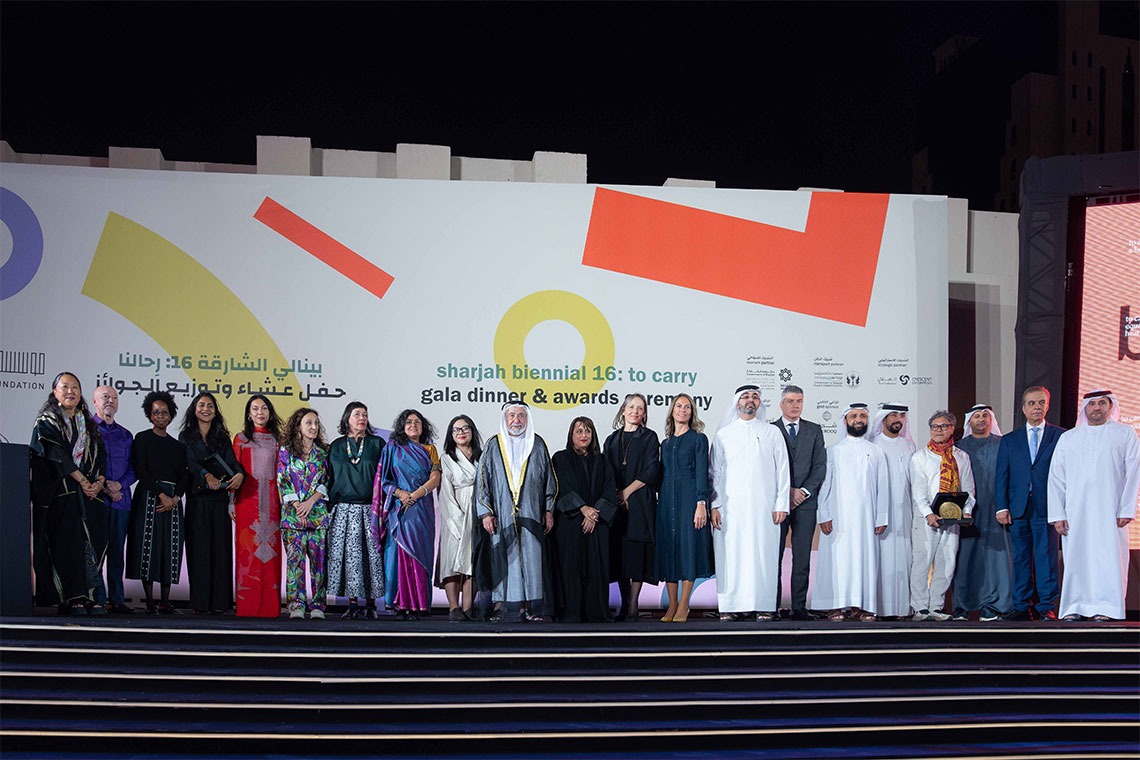The Sharjah Art Foundation recently announced the winners of the Sharjah Biennial Prize for its 16th edition, honouring Aziz Hazara, Pallavi Paul and Pratchaya Phinthong. The prize was presented by a renowned panel of jurors, including architect and curator Paula Nascimento, curator Eungie Joo and curator Gerardo Mosquera.
The theme of the 16th Sharjah Biennial, entitled to carry, is a reflection on the weight of history and the significance of what we choose to carry forward. Curated by Alia Swastika, Amal Khalaf, Megan Tamati-Quennell, Natasha Ginwala and Zeynep Öz, the exhibition invites exploration of the diverse meanings of carrying whether it be knowledge, history or materials across various global contexts.
Among the winners, Hazara’s work, I Love Bagram (2025), displayed in the Old Al Jubail Vegetable Market, offers a meditation on the aftereffects of military intervention. His installation, along with Bagram Field Notes (2021–ongoing), delves into the remnants of everyday life left behind after conflict, creating a radical archive of survival and resistance.
Paul’s installation, which includes Reckoning (2024), Afterglow (2024) and the film How Love Moves (2023), engages with themes of life, death and the human condition. The artist’s work tells the story of Shamim Khan, a gravedigger who buried thousands of victims of COVID-19 and communal violence during the Delhi riots of 2020.
Phinthong’s piece, We are lived by powers we pretend to understand (2024) features an underwater steel structure connected to a solar panel. This installation, along with granite sculptures placed throughout Sharjah, examines the intersection of art, science, and heritage through the repopulation of coral reefs in the Gulf.



